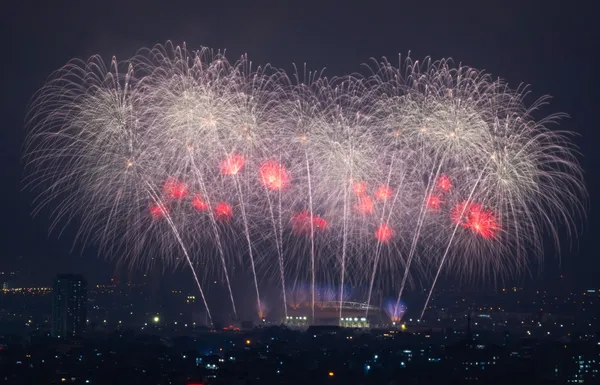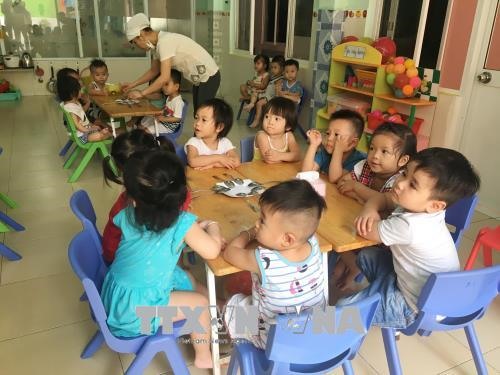 Society
Society

" />Many provinces and cities in the country plan to install cameras in kindergartens, but educators and lawyers say that the system cannot fully resolve the problems of bullying and physical abuse by teachers.
 |
| HCM City has begun a pilot programme to install cameras in all kindergartens. —VNA/VNS Photo |
HCM CITY — Many provinces and cities in the country plan to install cameras in kindergartens, but educators and lawyers say that the system cannot fully resolve the problems of bullying and physical abuse by teachers.
HCM City plans to pilot camera installation in all kindergartens in districts 1, 12, and Hóc Môn in the upcoming 2018-2019 academic year.
Cameras will be placed in classrooms, sleeping rooms, dining rooms, kitchens, playgrounds, corridors, parking lots and at school doors.
Parents will be able to access the camera system, but some lawyers have said this is a violation of children’s privacy rights.
Lê Hoài Nam, deputy head of the city Department of Education and Training, said the cameras would help his department better manage behavioral problems in the classroom and reduce parents’ worries about their kids.
After the pilot programme ends, the city will put cameras in all kindergartens in the city.
HCM City has more than 1,200 public and private kindergartens, and 1,845 private nurseries.
Of 465 public kindergartens and nurseries, nearly 48 per cent have installed cameras in school yards, corridors and stairs. Only 0.9 per cent of them have installed cameras in their classrooms.
Seventy-three per cent of 743 private kindergartens have camera systems in school yards, lobbies and stairs and 4.48 per cent have cameras in classrooms.
Of 1,845 private small-sized nurseries, nearly 52 per cent have installed cameras in school yards and 10 per cent in classrooms.
The city’s neighbouring province of Đồng Nai also plans to install cameras in all kindergartens, and has submitted the plan to the provincial People’s Committee.
Trương Thị Kim Huệ, deputy director of Đồng Nai Province’s Department of Education and Training, many cases of teachers’ bullying children have been reported.
The province has more than 172,000 children enrolled at 300 private and public kindergartens and 920 small-sized nurseries.
Trần Trung Mậu, vice chairman of the HCM City’s Retired Teachers Association, said the presence of cameras at school would help school leaders take the initiative in checking bullying and physical abuse of children..
He said that parents whose children are enrolled at private kindergartens with cameras are now less worried than before.
Teachers, however, feel uncomfortable about being watched, particularly in the beginning, and school leaders and parents should try to sympathise with teachers, Mậu said.
Teacher opposition
The results of the HCM City Department of Education and Training survey of teachers and parents in districts 1, 12, and Hóc Môn districts show that 88 per cent of parents agree, but 52 per cent of teachers disagree.
The teachers said they felt pressure and fatigue from being watched. Misunderstandings about teacher’s methodologies could also occur, they said.
Lawyer Đỗ Ngọc Thanh of the city’s Lawyer Division under the Association for Protection of Children’s Rights told Việt Nam News that the cameras could not entirely solve the problem.
If teachers wanted to bully or physically abuse students, the teacher could still do so outside the viewing range of the camera, he said.
Trần Thị Ngọc Nữ, head of the city’s lawyer Division under the Association for Protection of Children’s Rights, said that if cameras were installed in kindergartens’ classrooms, only school leaders should be allowed to see the cameras for purposes of supervision and management.
Nữ said that parents of kids at kindergartens should not be allowed to access the system because it is a violation of human rights. —VNS




